Just In
- 1 hr ago

- 11 hrs ago

- 15 hrs ago

- 15 hrs ago

Don't Miss
- Finance
 1:1 Bonus Share: Multibagger LIC-Backed FMCG Penny Stock Declares Over 700% Rally In Q4 Net
1:1 Bonus Share: Multibagger LIC-Backed FMCG Penny Stock Declares Over 700% Rally In Q4 Net - Sports
 Pakistan vs New Zealand Live Streaming: PAK vs NZ Live Telecast in UK, USA and Canada
Pakistan vs New Zealand Live Streaming: PAK vs NZ Live Telecast in UK, USA and Canada - Movies
 Ranam OTT Release Date And Platform: When And Where To Watch Vaibhav Reddy Starrer Movie Online
Ranam OTT Release Date And Platform: When And Where To Watch Vaibhav Reddy Starrer Movie Online - News
 Delhi Capital's Captain Rishabh Pant Gathers Praise For His Wicketkeeping Skills, Stunning Catch
Delhi Capital's Captain Rishabh Pant Gathers Praise For His Wicketkeeping Skills, Stunning Catch - Education
 SCCL Recruitment 2024; Application process, Selection criteria and more
SCCL Recruitment 2024; Application process, Selection criteria and more - Automobiles
 Mahindra 3XO SUV Latest Teaser Reveals Connected Car Tech: All Details Here
Mahindra 3XO SUV Latest Teaser Reveals Connected Car Tech: All Details Here - Technology
 OnePlus 13 Early Leak Hints at a Revamped Camera Island, and Fast Charging to Remain at 100W
OnePlus 13 Early Leak Hints at a Revamped Camera Island, and Fast Charging to Remain at 100W - Travel
 From Coconut Breaking on Head to Men Dressing as Women: 12 Unique Indian Rituals Explored
From Coconut Breaking on Head to Men Dressing as Women: 12 Unique Indian Rituals Explored
Read To Know All About Type 1 Diabetes: Symptoms & Causes
Type 1 diabetes symptoms are dehydration, weight loss, etc. Read to know what are the other symptoms of this condition and the risk factors that cause T1DM.
Type 1 diabetes is a rare condition, but its risk and complication puts the medical expert under pressure to find out the treatment for diabetes.
Type 1 diabetes is also known as juvenile diabetes. This condition occurs when the immune system abolishes the cells present in the human pancreas.
When the pancreas cannot produce enough amount of insulin, a chronic condition called type 1 diabetes occurs. In this case, the immune system destroys the beta-cells and blocks the production of insulin.
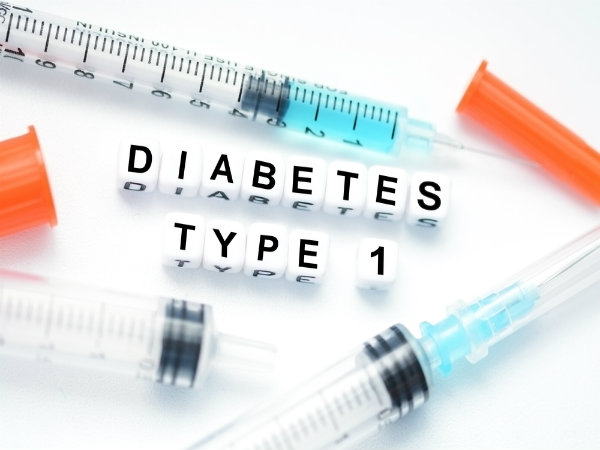
Most cases of type 1 diabetes are recorded during childhood or adolescence. But adults can also be diagnosed with type 1 diabetes at any age.
Type 1 diabetes still has no cure. But proper treatment of diabetes will help to manage the condition better. This will allow the affected individuals to live a healthier life.
Type 1 diabetes usually occurs due to the destruction of beta-cells in the immune system. These are actually supposed to fight against the bad or harmful viruses and bacteria to protect the body. But, when the cells are damaged, it leads to lack of insulin and thereby T1DM or type 1 diabetes mellitus.
In this article, we have mentioned some of the top symptoms, causes/risk factors and treatment of T1DM.

Type 1 Diabetes: Symptoms
1.
Dehydration:
When
the
blood
sugar
level
is
high,
an
individual
will
feel
the
urge
to
urinate
more
often
as
a
way
of
the
body
mechanism
to
get
rid
of
the
extra
amount
of
sugar
in
the
body.
When
the
symptoms
occur
on
a
regular
basis,
the
body
will
dry
out
due
to
the
loss
of
a
large
amount
of
water.
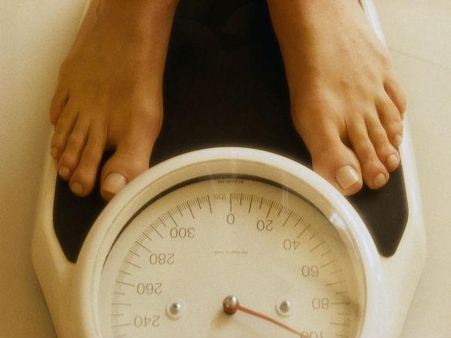
2. Weight Loss:
Calories also leave the body in the form of glucose during this time. Weight loss occurs for people with type 1 diabetes, as they have a high level of sugar in the blood. This is one of the top symptoms of type 1 diabetes.

3. Diabetic Ketoacidosis (DKA):
The extra glucose, acid buildup and dehydration are mixed into a combination called 'ketoacidosis'. This condition is known to be very dangerous and life-threatening.

Type 1 Diabetes: Causes/Risk Factors
1.
Age:
The
first
risk
factor
that
can
cause
T1DM
is
age.
It
can
be
noted
in
children
between
the
ages
of
4
and
7
years.
It
can
also
occur
in
children
from
10
to
14
years
of
age.

2. Family History:
If there is at least one person in your family, like your parent or sibling, with type 1 diabetes, then you'll be at a higher risk of contracting this disease. This is also one of the causes of type 1 diabetes.

3. Genetics:
It has been proven that certain kind of genes are more vulnerable than other kinds of genes. This factor is under nobody's control.
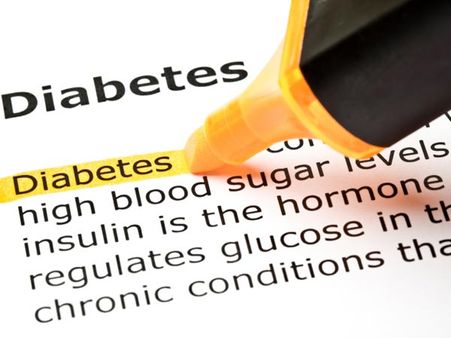
4. Geography:
It was found that people belonging to certain regions or exposure to certain viruses, low vitamin D levels, drinking nitrate-rich water, etc., see an increase in the risk factor of contracting T1DM.

Type 1 Diabetes: Complications
a.
Blood
And
Heart
Vessel
Disease:
Once
an
individual
is
affected
by
type
1
diabetes,
the
risk
factor
of
getting
cardiovascular
disease
will
also
increase
as
a
consequence.
These
problems
include
coronary
heart
disease,
heart
attack,
stroke,
high
blood
pressure,
narrowing
of
the
arteries,
etc.
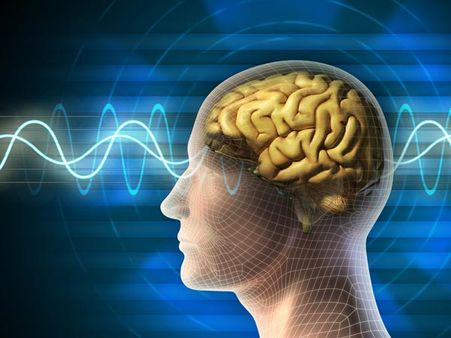
b. Nerve Damage:
Extremely low levels of sugar damage the walls of the blood vessels. These blood vessels are supposed to nourish the cells and tissues, in different parts of the body, especially in the legs. Hence, this can lead to nerve damage and this can in turn lead to tingling or pain in the tip of fingers or toes.

c. Eye Damage:
This occurs due to the damage of the retinal blood vessels. When the treatment is not effective, it can lead to serious vision problems like cataracts and glaucoma.
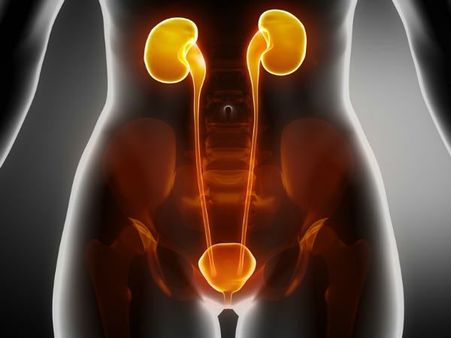
d. Kidney Damage:
Kidney comprises of small blood vessel clusters. Type 1 diabetes can cause kidney problems when it affects the delicate filtering system of the nephrons in the kidneys.

e. Pregnancy Complications:
It can be dangerous for pregnant women. When the blood sugar levels are high, it can cause serious complications for the mother and baby.

f. Foot Damage:
When the nerves in the feet are damaged, foot complications can occur. It may also occur due to poor blood flow. This condition can become serious if left untreated.

g. Skin And Mouth Conditions:
Skin sensitivity is another one of the rare complications of type 1 diabetes. This can lead to chronic conditions that can affect the skin and mouth.
-
 healthCommon Cold: Causes, Symptoms, Risks, Effective Remedies And More
healthCommon Cold: Causes, Symptoms, Risks, Effective Remedies And More -
 pregnancy parentingWhite Lung Syndrome: What Are The Symptoms Of The Disease Rampant In China? How Does It Spread?
pregnancy parentingWhite Lung Syndrome: What Are The Symptoms Of The Disease Rampant In China? How Does It Spread? -
 healthWorld HIV/AIDS Day: What Is The Difference Between HIV and AIDS?
healthWorld HIV/AIDS Day: What Is The Difference Between HIV and AIDS? -
 healthDoes This Everyday Cooking Ingredient Trigger Diabetes?
healthDoes This Everyday Cooking Ingredient Trigger Diabetes? -
 healthWorld AIDS Day: 3 Not So Common Ways HIV Can Spread from Person to Person
healthWorld AIDS Day: 3 Not So Common Ways HIV Can Spread from Person to Person -
 health5 Signs Your Kidneys Need Attention: Don't Ignore These Warning Signals
health5 Signs Your Kidneys Need Attention: Don't Ignore These Warning Signals -
 healthWorld Diabetes Day 2023: 3 Weird Things That Can Put You At Risk Of Developing Diabetes
healthWorld Diabetes Day 2023: 3 Weird Things That Can Put You At Risk Of Developing Diabetes -
 healthWorld Diabetes Day 2023: Daily Habits That Make One At Risk Of Diabetes
healthWorld Diabetes Day 2023: Daily Habits That Make One At Risk Of Diabetes -
 healthDengue 101: Causes, Symptoms, Risks, Complications, Treatment, Prevention, Diet And More
healthDengue 101: Causes, Symptoms, Risks, Complications, Treatment, Prevention, Diet And More -
 wellnessLung Cancer Awareness Month: Early Signs Of Lung Cancer In Men
wellnessLung Cancer Awareness Month: Early Signs Of Lung Cancer In Men -
 wellnessStomach Cancer Awareness Month: Is This Daily Habit A Cancer Trigger?
wellnessStomach Cancer Awareness Month: Is This Daily Habit A Cancer Trigger? -
 healthMan Dies After Eating Pasta Kept Outside Fridge: What Is Fried Rice Syndrome?
healthMan Dies After Eating Pasta Kept Outside Fridge: What Is Fried Rice Syndrome?


 Click it and Unblock the Notifications
Click it and Unblock the Notifications



